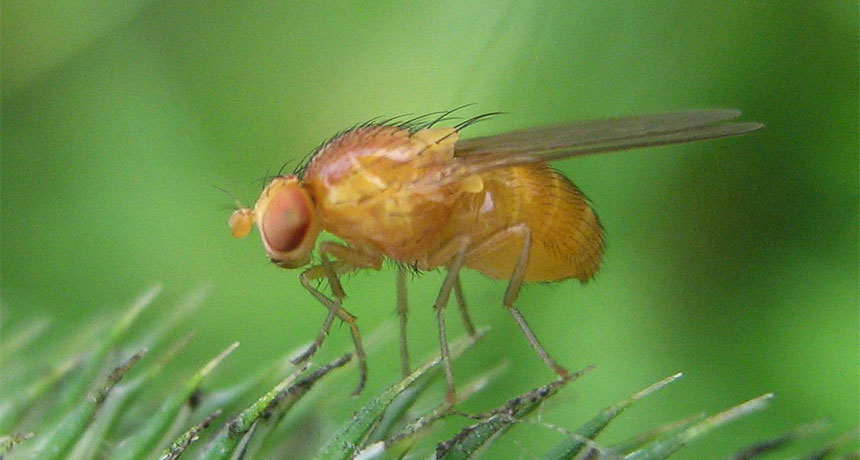Herbicide no match for fruit flies’ gut microbes

ORLANDO, Fla. — Fruit flies can break down a popular herbicide with help from friendly microbes, new research suggests.
Drosophila melanogaster fruit flies have no genes needed to process an herbicide called atrazine, statistical biologist James “Ben” Brown of Lawrence Berkeley National Lab in California said July 16 at the Allied Genetics Conference. Researchers expected that the inability to break down the herbicide might make the chemical, which is often sprayed on cornfields, toxic to the flies. But after feeding atrazine to fruit flies for 72 hours, Brown and colleagues detected very little response to the chemical.
Bacteria and other microbes that live in the intestines are often able to digest chemicals that their hosts cannot. So the researchers looked for atrazine-processing genes in bacteria that live in the fruit flies’ guts.
“When we look for those genes, we see them immediately,” Brown said. “Notably, no one microbe has all these genes. They are present in a consortium of microbes.” The result indicates that intestinal microbes work together to break down the chemical.
Brown and colleagues are testing atrazine and other pesticides to determine how the chemicals affect health. In the experiments, the researchers use fruit flies as surrogates for honeybees. It is not known whether honeybees also carry microbes that can break down the herbicide.